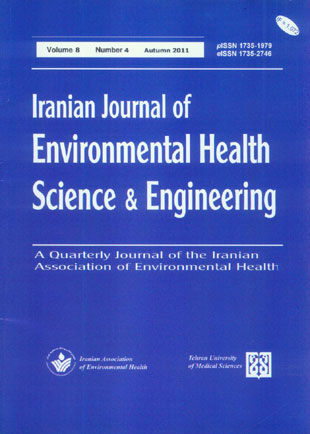OPTIMIZATION OF BACTERIOLOGICAL QUALITY OF BIOSOLIDSBY LIME ADDITION
Author(s):
Abstract:
Lack of well-stabilized biosolids is a basic problem for many municipal wastewater treatment plants in Iran. Disposed biosolids from west Ahvaz wastewater treatment plant were generally used for agricultural activities. Initial evidence showed that these biosolids were untreated and had the potential to transmit many pollutants to the environment and create hazards for public health، although anaerobic digester was selected for this wastewater treatment plant. The main objective of this research was to evaluate and optimize the bacteriological quality of biosolids by lime addition in west Ahvaz wastewater treatment plant. The stability and reuse potential of biosolids from existing anaerobic digester and lime added biosolids were investigated. Lime addition to biosolids was performed in the reactor with 30 L capacity. Averge amounts of fecal coliforms and viable helminthes ova in disposal biosolids from anaerobic digester were 1. 3×1015 MPN / g of dry solids and 314 ova / 4 g of dry solids، respectively. By lime addition with the ratio about 0. 265 g Ca (OH) 2 per g of dry solids، pH was not dropped under 12 and growth of fecal coliform was not detected after 30 days. In this regard، discharged biosolids from this plant was unstable and very dangerous for reuse or disposal. Lime addition could stabilize the biosolids and reduce fecal coliforms more than 99. 99% and had concordance with class B of United State Environmental Protection Agency criteria. Lime-stabilized biosolids could hence be well used for reconditioning the poor soil and for covering of solid waste landfill-sites.
Keywords:
Language:
English
Published:
Iranian Journal of Environmental Health Science and Engineering, Volume:6 Issue: 1, Winter 2009
Page:
29
https://magiran.com/p588368


